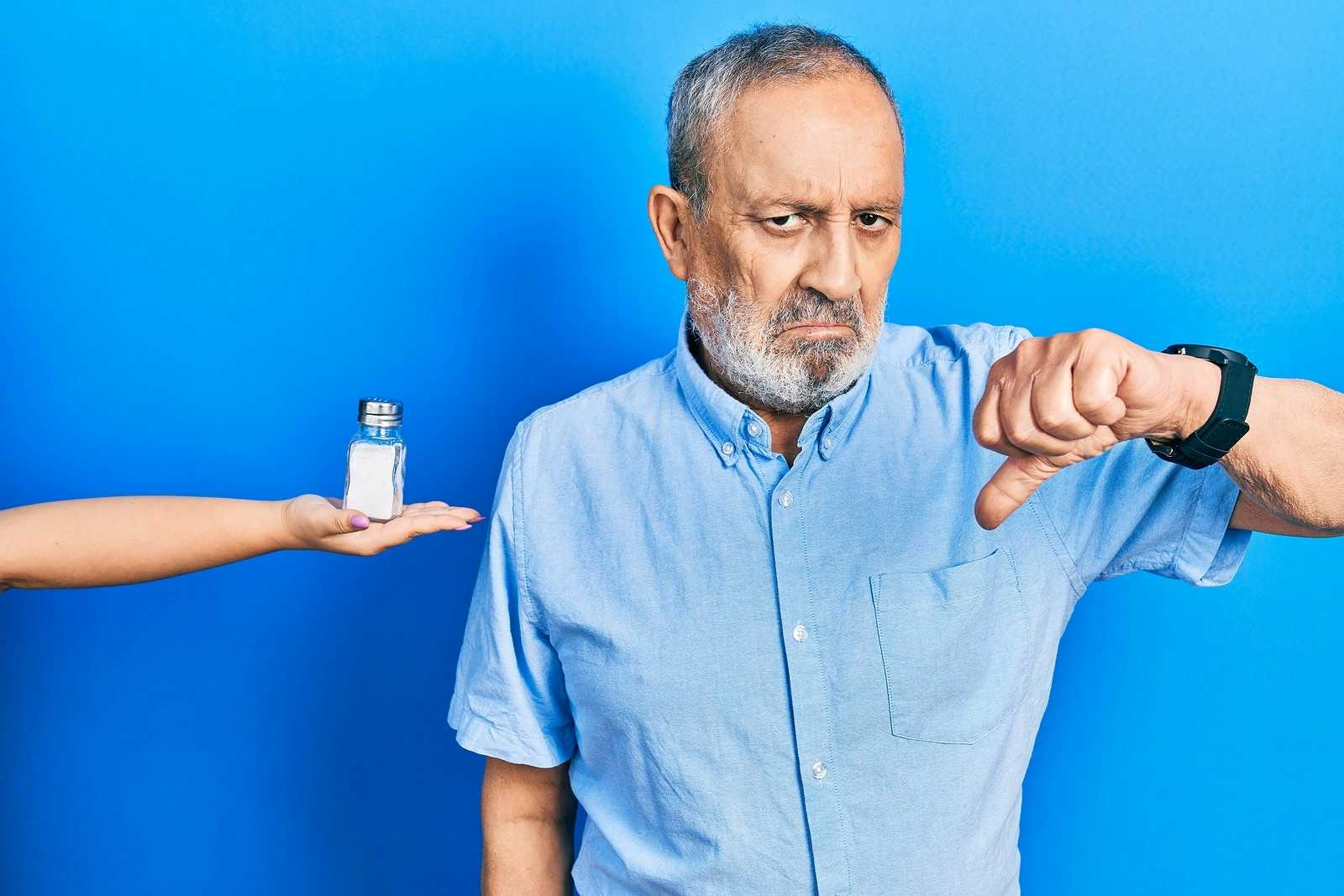
The American Heart Association has advice for people who want to keep their hearts healthy. It recommends exercising regularly, quitting smoking, eating plenty of vegetables and fruits, skipping junk food and cutting salt to no more than 1,500 mg per day. Most of these suggestions are uncontroversial. However, is it possible to cut salt too much?
Can You Get into Trouble Cutting Salt Severely?
A reader shares a los-sodium complication:
Q. For years I carefully kept my salt intake as low as possible. I cooked for myself, and I still do. At the table and in cooking, I used light salt (only half sodium chloride) from a small shaker.
One day my sodium level dropped to 125 and I started jerking and was near convulsions. After an ambulance ride to the emergency room, I learned how important it is to watch your salt intake. I was told by the hospital doctor to drink less water so as not to lose too much sodium through my urine.
The ER doctor also told me to eat extra table salt. When my sodium finally reached 134, which is only one point lower than the normal range, I started feeling so much better.
I have had three close friends who were also rushed to the hospital because of low sodium. One lady landed in intensive care. She went into convulsions and died with a sodium level of 120. I’d like to warn everyone to be sure to have the doctor check sodium with your usual blood tests. As long as I keep my sodium level in range I am fine.
Why Cutting Salt Too Much Can Cause Trouble:
A. Public health authorities like the American Heart Association have urged everyone to reduce their salt intake as much as possible, but sodium is essential for health. The normal range is between 135 and 145 mEq/L. When sodium falls too low (hyponatremia), it can be a life-threatening emergency.
We should point out that when the ER doctor told you to drink less water, he or she was dealing with the dire situation of that moment. In general, people don’t lose too much sodium through urine unless they have consumed excessive water. Skimping on water could lead to dehydration, another potential emergency.
Another Example of Cutting Salt Too Much:
This reader was also on a low-salt diet and was drinking 8 glasses of water daily:
Q. I just got out of the hospital. The doctors discovered that my sodium level was dangerously low. That explained why I was troubled with headaches, insomnia, muscle cramps, dizziness and severe fatigue.
Why do we get such conflicting messages about salt? I have been told for years to avoid sodium. During hot weather we are also told to stay well hydrated. I try to drink eight glasses of water daily.
Now I’ve learned from my hospital stay that too much water on a low-salt diet in combination with the HCTZ I take to control my blood pressure could be a big mistake. The doctors in the hospital actually told me to eat more salt! Go figure.
A. We are glad to hear that you have recovered from an extremely serious complication. Hyponatremia can lead to brain swelling, seizures, coma or even death if it is not corrected promptly.
Thiazide diuretics such as hydrochlorothiazide (HCT or HCTZ) can deplete the body of crucial minerals such as magnesium, potassium, sodium and zinc. Your health care provider should be monitoring these electrolytes, especially during hot weather.
While hydration is critically important when temperatures soar, you can overdo it. Instead of plain water, you should include a solution containing electrolytes as part of your liquid intake.
Scientists discovered decades ago that a low-salt diet could interfere with normal sleep (Journal of Clinical Endocrinology, March 1983). We fear this consequence of a low-sodium regimen has been overlooked.
Medicines Might Make the Problem Worse:
Certain medications can deplete the body of this mineral. Some diuretics, SSRI antidepressants, anticonvulsants and proton pump inhibitors can lower sodium levels (American Journal of Kidney Diseases, July 2008). Even nicotine patches could contribute to the problem (American Journal of Kidney Diseases, Nov. 2008). Older people may be especially vulnerable to this adverse effect (Clinical Interventions in Aging, Nov. 14, 2017).

